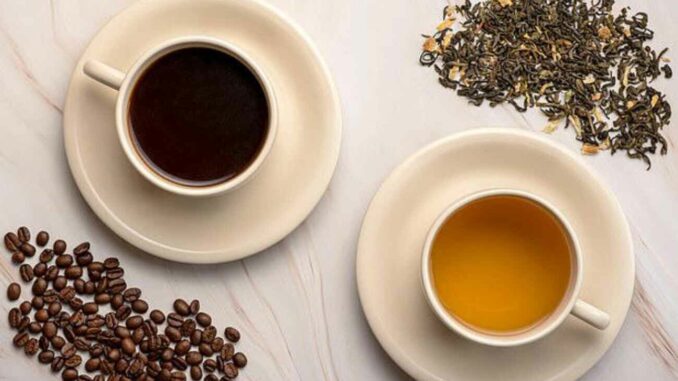
Choosing between coffee and tea isn’t just about taste—it might also affect your health, especially when it comes to heart attacks and strokes. Both beverages are known for their benefits, but recent research suggests one might be better for lowering stroke risk. Here’s what the study reveals.
Coffee or Tea: Which Is Healthier?
- Coffee and tea both offer health benefits such as:
- Boosting energy
- Reducing inflammation
- Lowering the risk of heart disease
However, when it comes to reducing the risk of a stroke, tea may have a clear advantage over coffee.
Study Overview: Coffee and Tea’s Impact on Stroke Risk
A large international study, involving over 25,000 participants from countries like the UK and Canada, explored how coffee and tea affect stroke risk.
Key Findings:
- Drinking more than four cups of coffee per day increased stroke risk by nearly 40%.
- In contrast, drinking the same amount of tea reduced stroke risk by about 20%.
Coffee’s Higher Stroke Risk
The study found that frequent coffee drinkers, especially those consuming four or more cups daily, were more likely to suffer from high blood pressure and other heart issues, which increased their risk of stroke.
Why Coffee May Increase Stroke Risk:
- Coffee contains higher caffeine levels than tea (about 80-100 milligrams per cup, compared to tea’s 50 milligrams).
- Caffeine can trigger the release of adrenaline, which raises heart rate and blood pressure. Over time, this can damage blood vessels, increasing the risk of clots and strokes.
Tea’s Stroke-Reducing Effects
Drinking tea, on the other hand, was linked to a lower risk of stroke, regardless of the type.
Types of Tea and Their Impact:
- Black teas (like Earl Grey and Breakfast teas) reduced stroke risk by 29%.
- Green tea lowered stroke risk by 27%.
Tea’s benefits could stem from its antioxidants, which help reduce inflammation, a key factor in preventing strokes.
The Role of Milk and Other Additives
Adding milk to tea, however, was found to negate its stroke-preventing benefits. This could be because milk blocks the antioxidants found in both tea and coffee. The study did not explore the effects of sugar, syrups, or other common additives.
Study Limitations
The researchers pointed out some limitations in their findings:
- Recall bias may have influenced results, as participants were interviewed shortly after experiencing a stroke.
- The study had a large demographic from China and South Asia, where tea is more commonly consumed, which may have introduced some bias.
Choose Wisely for Heart Health
While both coffee and tea have their benefits, drinking tea may be the better option for reducing the risk of stroke, especially if you consume several cups a day. If you’re a coffee lover, limiting your intake to three or fewer cups per day may help lower the risk.
References:
- Study published in the International Journal of Stroke.
- Data collected from over 26,000 participants in 32 countries, including the UK and Canada.
